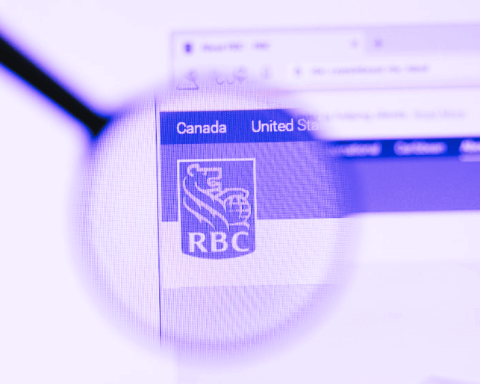Back in the day, only the most committed hunted down ethical investments. You had to run your finger through a phone book in search of a credit union, then head across town to meet with a financial planner who knew something – anything – about responsible investing. Fast forward to the present and sustainable investment funds are going gangbusters, hitting a global record of US$1.65 trillion by the end of 2020.
Around the world, investment firms, corporations and governments are scrambling to respond to calls for increased climate action and societal justice with pledges to measure everything against an environmental, social and governance (ESG) yardstick. But in the ESG stampede, insiders warn that too many stocks are getting tossed into green funds without enough oversight.
There have been grumblings about “greenwash” in the sector for years, but Tariq Fancy turned it up to 11, so to speak, when the former chief investment officer for sustainable investing at BlackRock (the world’s largest asset manager), raked the industry over the coals in a March op-ed.
“Wall Street is greenwashing the economic system and, in the process, creating a deadly distraction. I should know; I was at the heart of it,” Fancy wrote in USA Today. In many instances, “existing mutual funds are cynically rebranded as ‘green’ – with no discernible change to the fund itself or its underlying strategies – simply for the sake of appearances and marketing purposes. In other cases, ESG products contain irresponsible companies.”
His charges were damning, but they weren’t news to those paying attention. Last year, UK-based ShareAction examined 75 of the most influential asset managers worldwide and concluded that “50 have a very limited approach to managing ESG risks, receiving either a D or E rating.” Though a third ranked higher than a B (BMO and HSBC Global Asset Management earned Bs, while RBC and Manulife scored Cs), BlackRock, tellingly, was slapped with a D.
Nonetheless, Hugh Wheelan, co-founder of Responsible Investor, says that Fancy is only partly right. “Do we face swathes of greenwash in ESG statements, fund compositions and company ‘assessments’? Yes, with caveats. Little of what goes into environmental funds is 100% green (nothing is), and ESG is not a science.” Still, he urged the public to reject easy cynicism and remain committed: “Now is the time to hold fund managers to account.”
At the heart of the problem is the lack of agreed-upon standards for qualifying for, say, an “ESG-aligned” investment fund. Though that’s starting to change. In March, the U.S. Securities and Exchange Commission announced a new Climate and ESG Task Force in its enforcement division, tasked with “proactively identifying ESG-related misconduct.” Across the pond, the EU’s new rules designed to stamp out ESG-fund greenwashing take effect in June.
Debate rages over whether that green taxonomy is too watered down or too tough to support higher-carbon companies as they transition to net-zero. Mark Carney’s take: “We don’t just need brown/green; we need 50 shades of green and we need a way to communicate more precisely.”
Most agree with Fancy about one thing: “We’re running out of time and need to accept the truth: To fix our system and curb a growing [climate] disaster, we need government to fix the rules.” Or rather, we need to turn up the pressure on government to fix the rules.
Fund spotlight:
BlackRock iShares MSCI ACWI Low Carbon Target ETF (CRBN)
What’s promised: This ETF “seeks to track the investment results of an index [composed of companies] with a lower carbon exposure than that of the broad market,” giving investors “exposure to a broad range of global stocks that are less dependent on fossil fuels.”
What’s inside: Traditional ethical investors might gasp when they see 15 makers of controversial weapons, including Lockheed Martin, nestled in this portfolio. Turns out even the world’s largest maker of bombs, missiles, fighter jets and nuclear subs has developed a low-carbon transition plan (net-zero thermonuclear warheads, anyone?).
Even if you generously assume the same holds true for the handful of for-profit prisons, harmful pesticide-makers and mining firms tied to severe environmental damage in this ETF’s portfolio, low-carbon purists will no doubt take issue with some of the fund’s most climate-contentious holdings, including:• 6 thermal coal-burning companies
• 11 climate-policy-
blocking companies, including Berkshire Hathaway and Chevron
• 4 deforestation and palm oil laggards linked to clearcuts in the Amazon rainforest and Southeast Asia (deforestation is a primary contributor to climate change), and
• 6 industrial meat companies, including Tyson Foods, America’s largest beef, pork and poultry processor (animal agriculture is a significant contributor to climate change).BlackRock’s position: BlackRock says the ETF’s MSCI weighted average carbon intensity (tons CO2e/$M sales) is just 64.74, significantly lower than the 178.5 average for benchmark MSCI ACWI Index. Whether that will convince climate-conscious investors that this fund deserves their attention remains to be seen.
Adria Vasil is the managing editor of Corporate Knights. She’s also the author of the bestselling Ecoholic book series.







